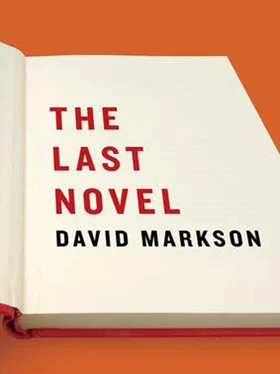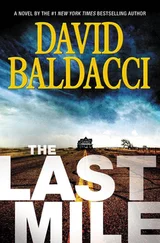Reads another Mozart letter to Anna Maria.
Leering effrontery, Harper’s Weekly once accused Matisse of.
He’ll probably never write a good play again.
Responded George Bernard Shaw — on being told that Eugene O’Neill had given up drinking.
Willem de Kooning was twenty-two when he emigrated to the United States from Rotterdam — as a stowaway on a British freighter.
The oddity that Velazquez and Picasso, surely two of the three greatest Spanish-born painters, each used his mother’s name rather than his father’s.
Among the fragments of ancient Greek literature unearthed in Egypt, where the climate and the soil preserve them extraordinarily, there is almost twice as much material about Homer as anyone else.
And five times as much Plato as Aristotle.
Andrew Lang’s indignation over a mild blasphemy in Tess of the d’Urbervilles.
A gentleman who turned Christian for half an hour, Hardy dismissed him as.
Spinoza, who spent his last years in a single attic room in The Hague — and slept in some variant or other of what is now called a Murphy bed.
Spinoza. Shoving or yanking or hoisting or whatever, to force the unstable whatchamacallit up against the wall each morning.
Unworthy of the poets’ corner of a country newspaper.
Yeats called Wilfred Owen.
No one expressed interest in publishing Shelley’s Defense of Poetry until almost twenty years after his death.
No one expressed interest in publishing Billy Budd until thirty-three years after Melville’s.
Every Grass, Emily Dickinson once refers to.
While also contriving:
The Grass so little has to do
I wish I were a Hay —
Balzac had written eighty-five novels in his Comédie humaine — with fifty more already planned — before dying at the age of fifty-one.
Adam was bored alone; then Adam and Eve were bored together.
Said Kierkegaard.
Amid the clutter of multilingual graffiti beside the door to the St. Petersburg garret that is alleged to be the one Dostoievsky used as a model for Raskolnikov’s:
Don’t do it, Rodya!
Old enough to remember when they were still called penny postcards.
And a letter cost three cents.
Like the daily New York Times.
Trying to calculate the odds against two poets as talented as Sylvia Plath and Anne Sexton taking part in the same university writing workshop at the same time — and with an instructor of the stature of Robert Lowell.
And/or the chances that within a decade and a half both would be suicides.
The next best thing to God.
Edna O’Brien called literature.
Manet made two separate copies of Delacroix’s Dante and Virgil in Hell.
Cézanne made six.
July 6, 1971, Louis Armstrong died on.
In Elizabethan London — the heads of executed criminals on spikes on London Bridge.
Wondering how frequently Shakespeare or Marlowe or Jonson might have paused to watch their eyeballs being plucked out by kites or crows.
Bertrand Russell wrote his Introduction to Mathematical Philosophy while serving six months in Brixton prison for pacifist protests during World War I.
Enrico Fermi once wrote an entire full-length textbook on atomic physics in pencil — without an eraser.
Eighty-eight years after his death, almost fifty Turner canvases, rolled up and inexplicably mislabeled as tarpaulins, were come upon by sheerest chance in National Gallery storage rooms.
Valladolid, Christopher Columbus died in.
After drinking heavily, Philip of Macedon once pronounced a judgment that an elderly woman said she would appeal.
Appeal to whom, when I am your king?
To my king when he is sober.
Philip reversed his judgment.
Ambition for wealth is the enemy of artistic excellence.
Warned Leon Battista Alberti — in 1436.
O painter, take care lest the greed for gain prove a stronger incentive than the desire for renown, for this latter achievement is a far greater thing than riches.
Wrote Leonardo two generations afterward.
George Moore once walked in on Swinburne, uninvited, to find him striding back and forth declaiming Aeschylus at the top of his voice — stark naked.
The first opera Toscanini ever saw, at the age of four, was Un Ballo in Maschera.
The last opera Toscanini ever conducted, at the age of eighty-seven, was Un Ballo in Maschera.
A sixth-century AD sporting event, as Novelist remembers it from Beowulf:
Holding one’s opponent under water until he is drowned.
Fenimore Cooper used almost eleven hundred Shakespeare quotations as epigraphs and/or chapter headings in his thirty-plus novels.
My music is best understood by children and animals.
Said Stravinsky.
The thought of Rembrandt’s bankruptcy, at fifty. Of his possessions — his paintings — being sold for whatever pittance they might bring. Of Rembrandt himself being evicted from his home.
Rembrandt.
Now Dawn arose from her couch beside the lordly Tithonos, to bear light to the immortals and to mortal men.
Says the opening of Book XI of the Iliad.
Now Dawn arose from her couch beside the lordly Tithonos, to bear light to the immortals and to mortal men.
Says the opening of Book V of the Odyssey.
He had the finest ear, perhaps, of any English poet; he was also undoubtedly the stupidest.
Said Auden of Tennyson.
Not conspicuously intelligent.
Auden added re Yeats.
Advice from Arthur Schnabel to the younger Vladimir Horowitz:
When a piece gets difficult, make faces.
The greatest love specialist in the world, Samuel Goldwyn called Freud.
While offering him $100,000 to supervise or even write a romantic story for Hollywood.
Freud at the time was asking fees of twenty dollars an hour. He dismissed Goldwyn with a one-sentence note.
Discovering that the Cynara to whom Ernest Dowson had been faithful in his fashion was in fact a London waitress.
Wagner has some fine moments. But some bad quarters of an hour.
Said Rossini.
The color of cognac.
Rodin described Suzanne Valadon’s hair as.
The imagination will not perform until it has been flooded by a vast torrent of reading.
Announced Petronius.
You have to read fifteen hundred books in order to write one.
Flaubert put it.
Fra Filippo Lippi was past fifty, and the chaplain of a convent, when he abducted the nun by whom he would have two children — one of the same being the Filippino who would follow him as an artist.
Albert Pinkham Ryder dressed so shabbily that now and again people attempted to hand him loose change as he walked the streets near Greenwich Village.
The artist must live to paint and not paint to live. He should not sacrifice his ideals to a landlord.
Ryder said.
Nobody wants his mule and wagon stalled on the same track the Dixie Limited is roaring down.
Said Flannery O’Connor — apropos of being a Southern writer as a contemporary of Faulkner’s.
Among the many paintings in her Paris flat, Gertrude Stein had two exceptional Picassos.
If there were a fire, and I could save only one picture, it would be those two. Unquote.
August 15, 1967, René Magritte died on.
Victor Hugo constantly made notes about everything — and would turn aside in the middle of a conversation to scribble down something he himself had just said that he realized he might possibly later be able to use.
O Lord, who art hidden in the clouds and behind the cobbler’s house —
Commenced a prayer voiced by Marc Chagall as a boy in Vitebsk.
The nature of genius is to provide idiots with ideas twenty years later.
Читать дальше












